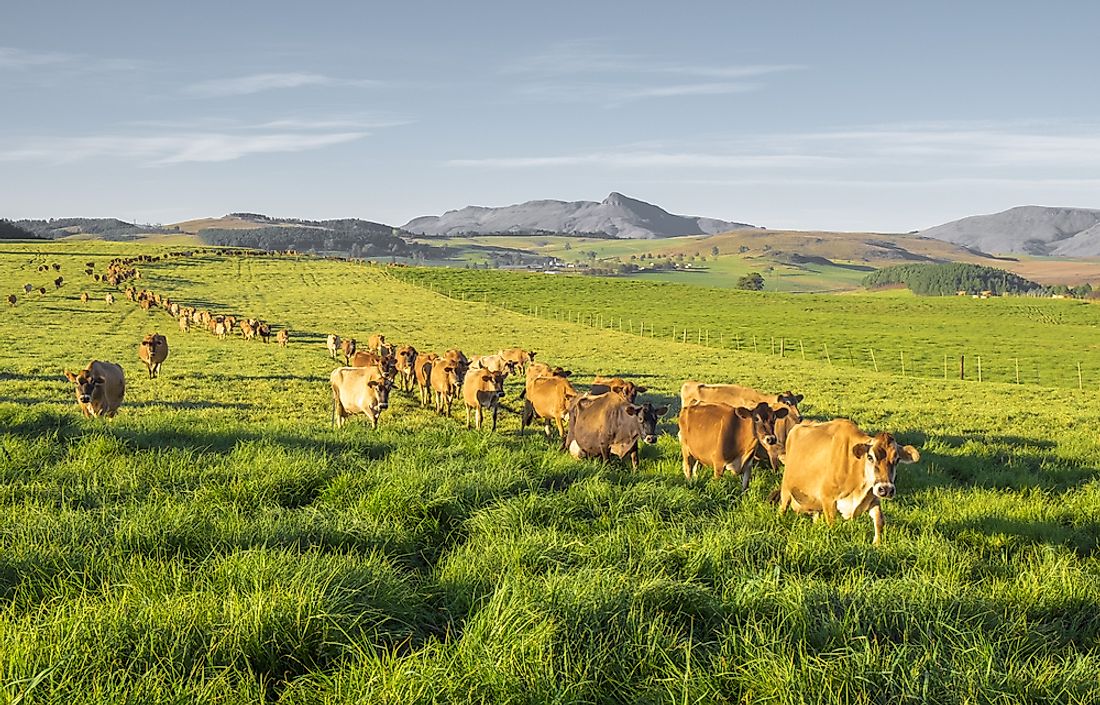Countries Where Men Are Most Likely To Work On Farms

Men continue to dominate their female counterparts in employment. Only an average of 13% of the female population is employed today compared to 38% of the men in most economies. Agriculture is one of the key areas where a significantly high number of men are hired compared to women. The level of productivity on men in farms is greater than that of women. The male is stereotyped as the stronger gender with a higher output per hectare compared to women. Other farming activities such as hunting and fishing are also considered riskier for women hence the large numbers of men being employed to work on the farms. Some of the countries where men are likely to work on farms are discussed below.
Ethiopia
82% of Ethiopia population lives in rural area, and agriculture is the major economic activity and the country’s primary source of revenue. Agriculture accounts for 80% of Ethiopia’s export thus the primary source of both formal and informal employment. Family labor is very common in most small-scale farms because of the small farm sizes. However, commercialized agriculture has opened up for both skilled and unskilled labor. According to Food and Agriculture Organization (FAO) statistics, the majority of these laborers are male, accounting for 80% of all farm workers in the country. In Ethiopia agriculture is mainly seen as a man’s job because of the hard work that goes into it. Besides this cultural norm, the operation of farm machinery has also been dominated by men, while women are more likely to be engaged in manual harvesting.
Tanzania
With the rising rate of industrialization, agriculture in Tanzania has faced a lot of challenges. The government of Tanzania is currently addressing the changes that face agricultural sector with the aim of improving its efficiency. Lack of adequate funding and modern farming skills has hindered commercialization of agriculture. However, the majority of farms are managed by families with household labor as the cheapest source of labor. Most workers in the farms are men with 6 out of 10 people employed in the farm being male translating to almost 64%. This gender difference in farm employment has confined women to taking care of the homes while the male counterparts work in the farms. The statistics are slowly changing with women increasingly seeking for employment in the farms.
Malawi
Malawi’s major farm products include tea, tobacco, groundnuts, coffee, and cotton. Though Malawi has minerals agriculture still leads in employment.The majority of farmers are engaged in subsistence farming, therefore, relying on family labor. Large farms, especially lucrative tea plantations, tobacco farms, and commercial size maize farms, frequently hire skilled farmers both to operate heavy machinery and act as supervisors, while unskilled laborers are generally employed for manual work. Unlike in Ethiopia, there is a little disparity in the gender of farm workers. 59% of hired labor is men while the rest are women. Women have been hired mainly in the tea plantations to assist in tea picking.
Honduras
16% of Honduras's territory can support agriculture, which is the primary sector of Honduras economy though most of the arable land remains unexploited. 34% of Honduras relies on agriculture for employment with agriculture accounting for 14% of the GDP. Labor is mainly manual and evenly distributed across gender with 50% of men hired to work on the farm.
Changing Workplaces
Women are increasingly taking up jobs on farms even though the number of men working in farms is still high. Men are slowly abandoning agriculture for industries and public jobs leaving their female counterparts in the rural areas to farm. Also, the prevalence of AIDS in developing countries, especially among men, has led to a decrease of the male workforce on many farms.
Countries Where Men Are Most Likely To Work On Farms
| Rank | Country | % of Male Workers Employed in Agriculture |
|---|---|---|
| 1 | Ethiopia | 80% |
| 2 | Tanzania | 64% |
| 3 | Malawi | 59% |
| 4 | Honduras | 50% |
| 5 | Bhutan | 49% |
| 6 | Ghana | 48% |
| 7 | Vietnam | 45% |
| 8 | Guatemala | 45% |
| 9 | Thailand | 44% |
| 10 | Philippines | 38% |











